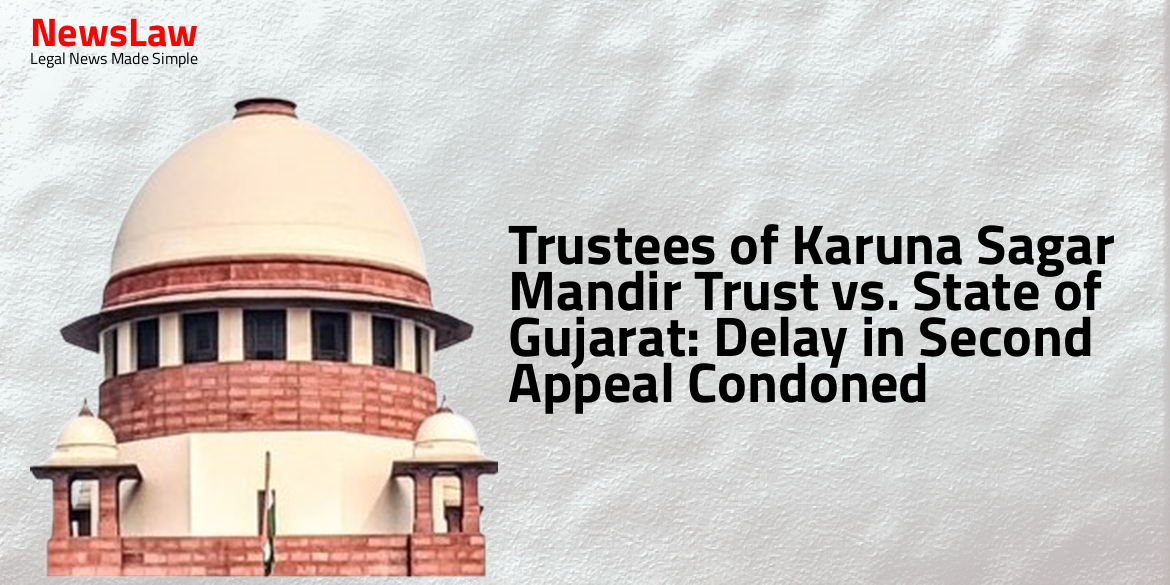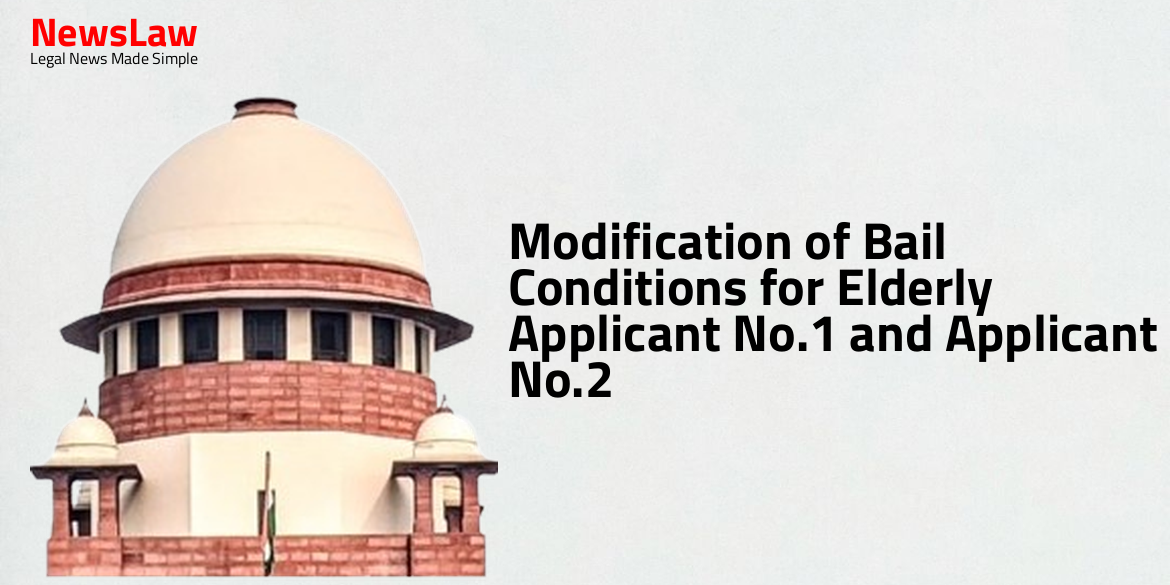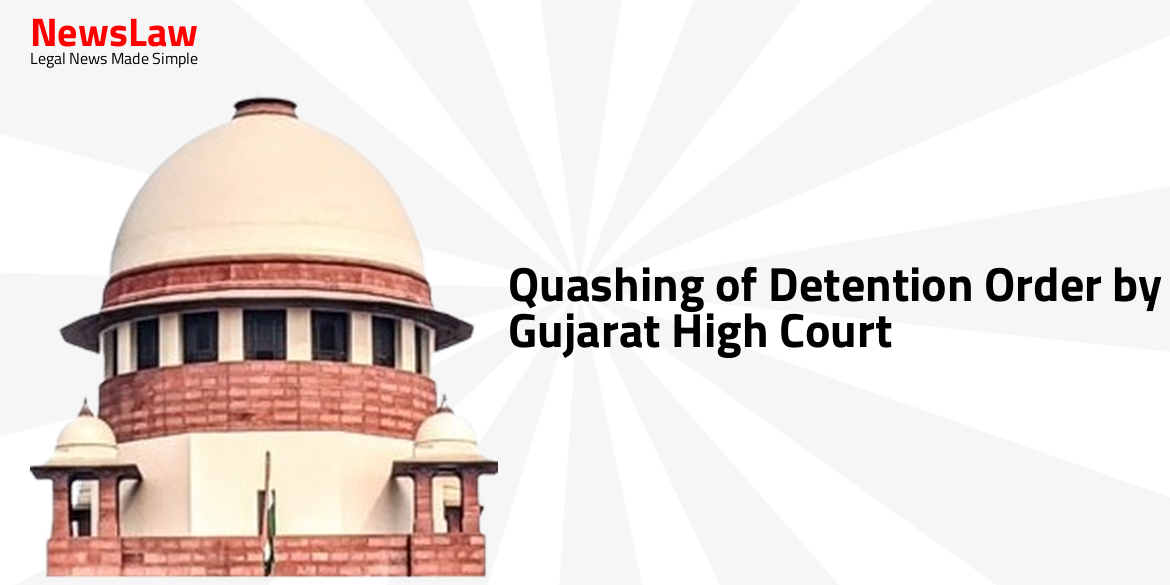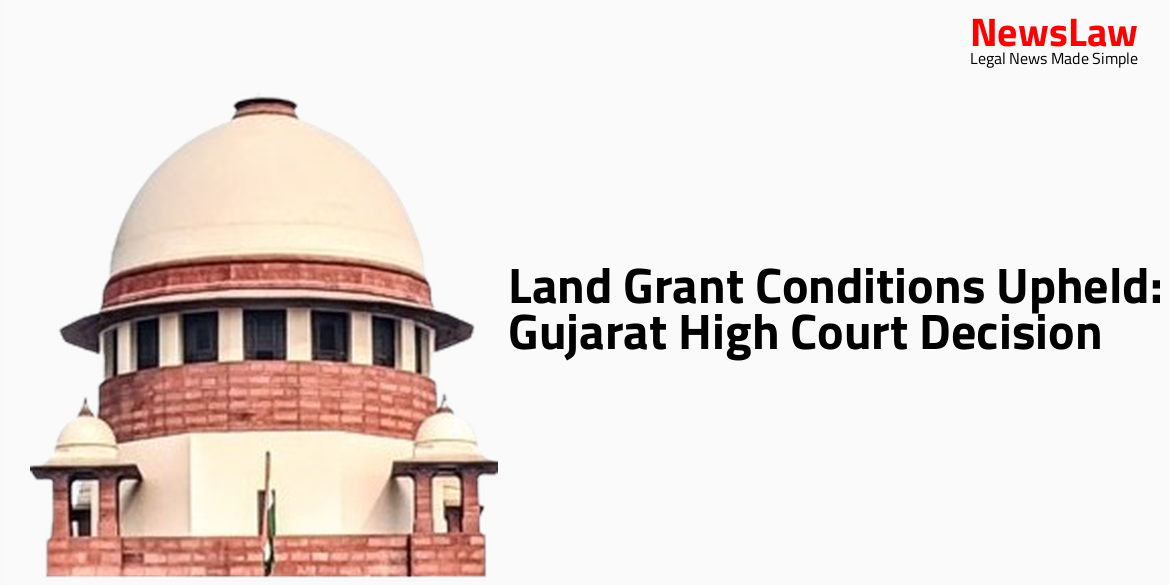In a significant ruling by the Gujarat High Court, the delay in the second appeal filed by the Trustees of Karuna Sagar Mandir Trust against the State of Gujarat has been condoned. The case highlights the importance of substantial justice prevailing over technical considerations, ensuring fairness in legal proceedings. Learn more about this key decision involving the Trust and the State of Gujarat.
Facts
- The applicants have prayed to condone the delay of 1662 days in preferring the second appeal.
- The delay was caused due to the trustees of Karuna Sagar Mandir Trust coming on record in 2018 and discovering the sale of trust property by previous trustees without necessary permission under the Bombay Public Trust Act.
- The grounds for condonation of delay include lack of knowledge about the sale of trust property and failure to obtain required permission under the Act.
- The applicants seek relief for the delay in filing the second appeal.
Arguments
- Delay in filing second appeal was due to trustees of the trust coming to know about the judgment and decree only upon execution proceedings being initiated.
- Explanation for delay was considered sufficient as the trustees are prosecuting the case for the trust’s cause.
- Glaring defect in the impugned judgment was the grant of specific performance without statutory permission under section 36 of the Act.
- Applicants, as trustees, have no personal interest in the matter but are safeguarding the trust properties from being vested and in danger.
- Mr. Manan Shah, learned advocate for the respondents, opposes the condonation of delay by pointing out that the execution petition was filed in 2015 and notices were served to the trustees at that time as well.
- The trustees, who are the applicants, were aware of the decree since 2015 but failed to take timely action by not filing an appeal within the specified period.
- Mr. Manan Shah argues that allowing the delay now would essentially be in favor of the defendants who have gained a perfected right due to the lapse of limitation.
- He cites the judgment in the case of State of U.P. and others Vs. M/s Satish Chand Shivhare and brothers (2022 LiveLaw (SC) 430) to support his stance against condonation of delay.
Analysis
- Courts should be vigilant in not exposing the other side unnecessarily to face frivolous litigation.
- Liberal, pragmatic, justice-oriented approach needed for condonation of delay.
- Terms ‘sufficient cause’ should be understood in spirit and philosophy.
- Substantial justice is paramount; technical considerations should not be overemphasized.
- No presumption of deliberate delay, but gross negligence to be noted.
- Adherence to strict proof should not hinder public justice.
- Liberal approach should encompass reasonableness and not be unfettered.
- Distinction between inordinate delay and short delay is important.
- Application for condonation of delay should be carefully drafted and not routine.
- Effort for consistency and collegiality in adjudicatory system is crucial.
- Perception of delay as non-serious should be curbed within legal parameters.
- Refusal to condone delay can lead to justice being defeated.
- Lack of bona fides imputable to a party seeking delay condonation is relevant.
- No one can benefit from lodging an appeal late.
- Fraud or misrepresentation cannot be upheld by exploiting technicalities of limitation laws.
- Doctrine must be applied in a rational, pragmatic manner without being pedantic.
- Delay in filing the appeal is sought to be condoned in the interest of justice.
- Applicants have a meritorious case and are likely to succeed in the appeal.
- Applicants were not negligent in preferring the appeal.
- No prejudice would be caused to the other side if the delay is condoned.
- Latest Trustees were not initially aware of the court orders and took immediate steps upon becoming aware.
- Delay in filing the second appeal is attributed to the Trustees’ lack of knowledge about the orders.
- The delay is sufficiently explained by the Trustees’ actions.
- Conduct, behavior, and attitude of a party regarding inaction or negligence are relevant factors to be considered.
- Lack of bona fides in seeking condonation of delay is a significant and relevant factor.
- Condonation of delay is based on public policy and should not be routine or subjective.
- Liberal, pragmatic, and justice-oriented approach should be adopted.
- Substantial justice should prevail over technical considerations.
- The subsequent trustees took action upon being added to the trust and learning about the court proceedings.
- The State must not be subjected to stepmotherly treatment when seeking condonation of delay.
- The bureaucratic machinery and inherited methodology often contribute to delays in legal matters.
- The State, representing the collective cause of the community, should not be treated as a non-grata litigant.
- Courts should interpret the expression ‘sufficient cause’ with the spirit and philosophy of the provision.
- Justice on merits should be preferred over approaches that lead to scuttling decisions.
- In the present appeal, the delay was justified, and sufficient cause existed.
- The doctrine of equality before law requires even-handed treatment for all litigants, including the State.
- The identity of the party seeking condonation, whether State or private, is irrelevant.
Decision
- Delay of 1662 days in preferring the second appeal is condoned.
- The matter is remitted to the High Court for disposal on merits.
- The High Court will give both sides a reasonable opportunity to be heard.
Case Title: KARUNA SAGAR MANDIR TRUST Vs. HASMUKHLAL RATILAL
Case Number: R/CA/15/2023



